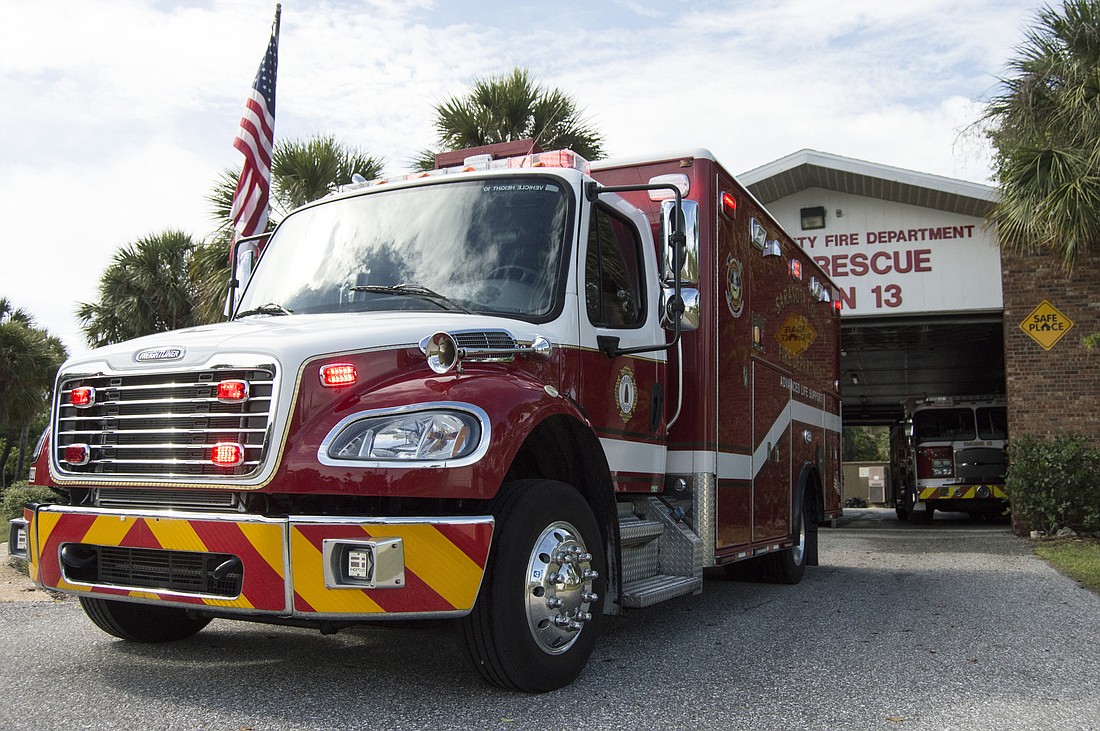- November 24, 2024
-
-
Loading

Loading

Residents on Siesta Key are quick to bring up safety concerns when it comes to traffic — mainly, that the congested roadways can slow down emergency vehicles on the way to help someone.
A year’s worth of data from the Sarasota Fire Department between May 2017 and April 2018 on Siesta Key, though, indicates response times at peak season don’t vary much from the rest of the year.
Year-round, the average time it took for emergency crews to make it to a scene on Siesta Key ranged between five minutes and 19 seconds and six minutes and 20 seconds. In March, which many consider to be the busiest month of the year for traffic and tourism, the average response time was the lowest of the 12 months.
Sarasota County Fire Chief Mike Regnier said while Siesta Key is a busy part of the county, it’s not the busiest or the slowest in terms of emergency calls. He and his team respond to anything from a minor scrape to cardiac arrest.
Even so, residents cite challenges for emergency responders as a reason to make some changes.
Siesta Key Association board member Joe Volpe said emergency vehicles could run into backups, and lose valuable response time, in traffic at drawbridges.
“You sit there for 15-20 minutes idling, if there’s an emergency vehicle trying to get off the island to the hospital, you can’t get off,” he said last year. “It’s a big nuisance. It’s a safety item.”
Recently, concerns about emergency vehicles fighting traffic came up as part of the discussion about a possible hotel on south Siesta Key. During the public hearing about amending the Siesta Key Overlay District to allow taller buildings closer to the street in commercial areas, residents cited safety concerns associated with increased traffic that could come with such a business.
“I recently had heart failure, and the ambulance had to pick me up,” said Siesta Key resident Joseph Kreiner at a hearing. “So imagine if a man like me with a heart condition like this is in that position in that area,” he said, referring to the area around Old Stickney Point Road.
Siesta Key resident Larry Kaplan took it a step further than just expressing worry over traffic — he called for an urgent care center in place of a hotel.
“If anything should go there, it should be an urgent care medical center because that’s the major problem of what we have,” he said. “An urgent care center on Siesta Key is critical. Every one of us is getting younger every day, in the reverse way. We don’t want more cars and traffic.”
According to data from the county, the month in which the emergency crews received the most number of calls from Siesta Key was March, with 168. However, the average response time that month was five minutes and 19 seconds — tied with April for the lowest average of the year. And at least a few times a month, the recorded response time was just a few seconds when people showed up at the fire station.
The longest response time during the year was in September, at more than 20 minutes. A note explains that this was during Hurricane Irma, and was weather-related. After that, the longest response time was 16 minutes and 22 seconds, on Thanksgiving.
To respond to emergencies on Siesta Key, Regnier and his team rely on the county’s emergency response system, which includes both a network of responders and a few important tools to get them where they need to be.
There is a fire station on Siesta Key, equipped with a fire truck and an ambulance. In addition, there are other stations just off the Siesta Bridge and the Stickney Point Bridge that can respond if the first team is busy.
“When there’s more people, obviously there’s more cars on the road, there are more delays to get to different locations,” Regnier said.
But the department employs a number of tools to mitigate traffic problems, including a system that takes over traffic signals at intersections to allow emergency vehicles to give themselves a green light.
On top of that, they are in constant contact with the bridge tenders to let them know when an emergency vehicle is coming through. Bridges will stay down to clear traffic so they can pass.
These factors and others work together to create the system that makes Regnier comfortable with how his crews navigate Siesta Key.
“We are ready to respond,” Regnier said. “We feel like we have a really good coverage with the system, and the system works well.”